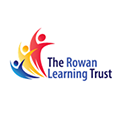Butterfly Class
In Butterfly Class, we take children from age 3. Children achieve, develop and have fun learning through play. This provision is lead by our EYFS Team Leader, who has a wealth of knowledge and skills and is effective in ensuring her team strive for the best possible outcomes and experiences for every child.
We offer Morning Sessions - 8:40 - 11:50am, and Afternoon Sessions - 12:10 - 3:10pm, Monday to Friday. Furthermore, we take pupils with 30-hour entitlement from 8:40 - 3:10pm (there is a £2 per day charge as our sessions total 32.5 hours).
Parents and carers are welcome every session to support children for the first 15 minutes. During this time, staff model positive interactions and support both parents and children with learning that could be continued at home. Parents and carers are invited to half termly 'Stay for a Story' sessions, 'Stay and Play' sessions, and 'Story Performances'.
In Butterfly Class, we build upon the Prime Areas of Learning that have developed at a rapid pace as a result of a high-quality, stimulating curriculum in our Caterpillar Class. These Prime Areas cultivate positive relationships and experiences, and run through and support learning in all other areas. They are:
Communication and language
Physical development
Personal, social and emotional development
In Butterfly Class, we begin to plan for four Specific Areas of learning that grow out of the Prime Areas, including essential skills and knowledge and providing important contexts for learning. They are:
Literacy
Mathematics
Understanding the World
Expressive arts and design
Reading and writing is an area of priority in Butterfly Class. Before our children can read or write, we support them in developing certain skills. Literacy in Butterfly Class encompasses activities to promote these skills which then lead into early reading and writing.
Making large arm movements with brushes or mops or copying movements in the air; making and using clay or dough, and picking up tiny objects all promote the development of the muscles needed for writing.
Going on listening walks, making up our own stories, doing rhythmic activities and teaching nursery rhymes and songs all promote reading skills.
Alongside these, we always have available the usual resources for mark-making such as pens, felt-tips and pencils as well as charcoal, nature brushes - using leaves or splayed sticks as brushes - sticks in sand or mud, paint or shaving foam on the ground where children can explore mark-making in various forms. We use sticks, leaves and other natural objects to identify and make letters.
'Talk 4 Writing' alongside a 'Narrative Immersion' approach positively impacts expressive arts and design. Pupils confidently learn texts orally with actions and internalise vocabulary, the flow of sentences, and text patterns. Planning conceptually-rich activities in a language filled environment, with literacy at the heart of the provision, has enhanced interactions and pupils' imaginations.
Characteristics of Effective Learning
The different ways in which children learn are also key to their development. The Characteristics of Effective Learning run through all areas of the curriculum and we use them to reflect upon how children learn and to inform how we teach and support them. We have Super Learner Capes to celebrate - Fantastic Focus; Keep it Up Captain; Agent Ideas; Super Explorer, and Have a Go Hero.
In Butterfly Class, pupils enjoy both rolling and a more formal daily snack. This gives them the opportunity to be snack monitors and care for their own peers. Building independent doers and thinkers is one of the goals of early childhood education. Snack time is a terrific time to let children learn all sorts of things:
Personal, Social, Emotional Development
- listening to other children
- learning about healthy foods
- learning about setting a table and how to behave there
- sharing the good things
Communication and Language
- talking to other children at the table
- making snack a social occasion
Physical Development
- judging the distances between chairs, place settings etc.
- being able to prepare and enjoy a snack, knowing that this is a useful skill
- handling dishes and cutlery
- learning the routine of snack; washing hands
- placing tumblers so they don't spill
- being responsible for tidying away
- pouring milk and controlling the flow
Mathematics
- counting to see if there is a space at the table
- matching and sorting items
- counting items, e.g. number of raisins
Literacy
- linking snack with shopping lists
Understanding the World and Creativity
- experiencing foods from different countries
- arranging snack items attractively
Parent Feedback
Please read some feedback we received from our parents:
"Please extend my thanks to the nursery team for all the prep work they did last year - introducing * to new environments and faces. I do feel that this has really helped him settle in quickly and has let him concentrate on learning and finding his place rather than feeling overwhelmed and unsettled. Also, they are doing a fantastic job with * - she loves going to 'school' and is learning and growing every day."
"Please thank the Speech & Language Team for the extra support they are providing. I know * enjoys his sessions and he seems to get a lot from them; although I do appreciate it's an on-going process."
"I must say, I've been very impressed with the extra sessions that the teaching staff have provided for parents - they have all been both helpful and encouraging."
 The Acorns Primary & Nursery School
The Acorns Primary & Nursery School